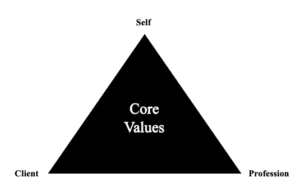What Is Accent Modification and What It Is Not
What Is Accent Modification and What It Is Not
There are a lot of questions about accent modification, benefits, and the best techniques. To better understand these, it’s important to know what is accent modification and what it is not.
Those who seek accent training services do so because their accent deviates from the native or standard accent of a community, and they perceive it to have negative consequences. Many clients choose to work on accent modification and professional speaking to improve their spoken language skills, raise self-awareness, or help work performance. After accent and professional speaking training, clients report benefits such as:
👉 Being more proficient communicators
🎉 Increased confidence
🌟 Gaining new professional skills
What Accent Modification Is
Accent modification is an elective service sought by individuals who want to change or modify their speech (ASHA.org). It has many different titles that you may have heard, including:
- Accent Learning
- Accent Acquisition
- Pronunciation
- Accent or Dialect Coaching
- Accent or Dialect Training
It is okay to refer to accent modification services by any of these titles. There isn’t one agreed-upon title yet. It seems that most of the online searches by clients are for accent modification, English pronunciation, and accent reduction (even though the latter is an antiquated term). The overall goal for accent training is accent congruence and helping clients achieve alignment with their accent and sense of self.
What Accent Modification Is Not
Accent training can be a very sensitive and personal topic. Unfortunately, there are several misconceptions about what accent training really is. Below are a few examples of what accent modification is NOT.
- Just articulation of sounds – Accent modification teaches segmentals (consonants and vowels) in addition to suprasegmentals, which is what gives a language its rhythm
- Accent reduction – Simply put, you are teaching a new accent not reducing or eliminating one
- Changing an identity – Accent modification focuses on becoming a more efficient communicator and gaining professional skills
While clients in the U.S. may feel that others have a difficult time understanding their spoken English or may be referred by an employer or professor, most of the time, they are very interested in improving themselves. I can relate to this on a personal level! I have been learning Spanish for many years and have visited many Spanish-speaking countries. When I gather up my courage to practice Spanish in these countries with native speakers, it doesn’t go well about half the time. Some listeners are very patient and work with me; others get confused and have no idea what I’m saying. It’s frustrating for me, but I know I have much room for improvement with my Spanish-speaking skills. I cannot control the people with whom I interact. I can only improve myself so that hopefully, the next interaction goes more smoothly.
Core Values
Core values of accent training that I have found to be important combine self-development, client values, and professional development:
Self: Remain curious and open about cultures and experiences of others
Client: Develop effective communication strategies based on own needs
Profession: Demonstrate the unique strengths that disciplines bring to AM

What do you think are the benefits of accent learning? What title do you think we should use for the service? Let us know in the comments below.
References
Lim, Kari. (2022). Speaking with an American Accent: A Guide to General American English. Independently published.



One Comment